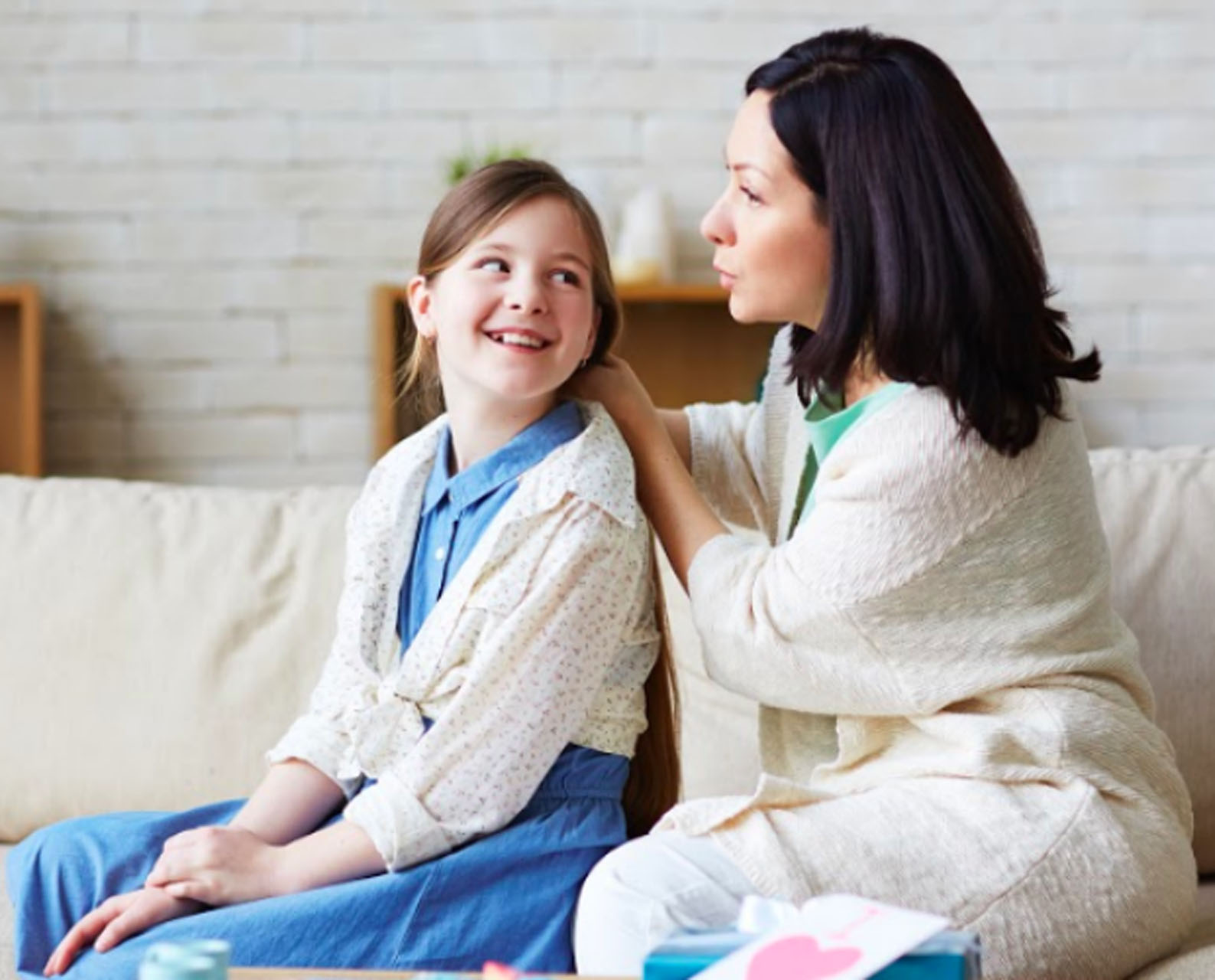Health
3 min Read
How Should I Start The Puberty Conversation?

February 28, 2019
Health
3 min Read

February 28, 2019

Some of us, who shall remain nameless, are in our late-thirties, are in our late-thirties, married with two kids and still waiting for our parents to give us “the talk.” Leaving the explanation of all-things puberty-related to teachers (and peers) isn’t everyone’s strategy, but the truth is, figuring out the best way to bring up this potentially embarrassing topic isn’t a cakewalk. We generally know the approximate ages of when puberty hits boys and girls both physically and emotionally, but most of us aren’t as confident about when to broach the subject
Dr. Megan Harrison is a paediatric and adolescent health specialist at Ottawa’s Children’s Hospital of Eastern Ontario. She says the “right” time can differ from kid to kid (and from family to family) because they mature—emotionally and physically—at different ages. It’s important for parents to trust their instincts. “My experience has been that youth like to know what’s going to happen to their bodies before those changes actually start because it’s less scary,” she says, adding that chatting about normal changes in advance (or at the first onset of changes) normalizes what’s happening and “allows kids to check in with parents because the door is already open.” Tip: Don’t think you have to put aside a Sunday afternoon and have a full presentation prepared. “I always remind parents that these talks can be very short and general to start. Sometimes it’s better to have many brief conversations spread out so that the discussion can become more detailed as the child gets older. This isn’t a ‘one-time’ conversation,” says Dr. Harrison.
Bringing up the topic may seem even more daunting than actually having it. “You might start with comments here and there with younger children, like, “Isn’t it amazing how our bodies change throughout our lives? Our bodies are incredible—we start as babies, grow into children, then into adolescents, and then we grow into adults,” she says. For older kids, you could comment on how they’re getting taller and tell them they’ll notice more changes as they continue to grow. (Some parents bring up the topic using books, which often works well with kiddos.) “The important thing to remember about these conversations is that children know that they can continue to ask their parents questions. Even if they seem embarrassed, the fact that parents have opened up a dialogue plants the seed for further discussion.”
Knowing what questions your kids might ask once the topic is out in the open can also make the situation easier. “Boys sometimes worry about their voice changing and ‘wet dreams,’ and girls tend to ask about breast development and menstrual periods,” says Dr. Harrison. “They often want to know how quickly these things will happen and if anything will hurt.” This is also the time when they’re developing their sense of body image and are usually more conscious of their appearance. “Puberty coincides with a lot of social changes, too, like managing relationships with friends. Questions about gender and sexuality may also come up,” she says. “The best thing parents can do is learn to listen to their children, reinforce the positive aspects of their kids’ development and be open to ongoing conversations about these subjects.”
Originally published in the Winter 2018 issue. Photo by iStockphoto.